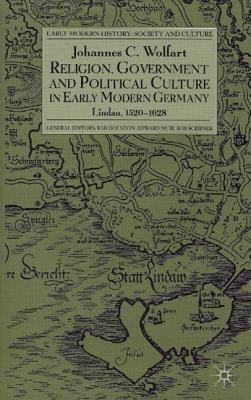The story of conflict in an island community offers a valuable case study for the analysis of early modern German political culture. Investigations range from interpersonal relations to dynamics of civic church and imperial government. Chronicled throughout are the interactions of two opposing principles in modern society 'secular' vs 'spiritual' and 'public' vs 'private'. These are found to operate both discursively and institutionally, and are deployed to help establish 'sovereign authority' ( Obrigkeit ), as well as to articulate resistance in the form of 'bourgeois republican ideology'.
| FindBook |
|
有 1 項符合
Wolfart的圖書 |
 |
$ 7250 | Religion, Government and Poltical Culture in Early Modern Germany: Lindau, 1520-1628
作者:Wolfart 出版社:Palgrave MacMillan 出版日期:2001-12-05 語言:英文 規格:精裝 / 261頁 / 22.4 x 14.5 x 2.3 cm / 普通級  看圖書介紹 看圖書介紹
|
|
|
圖書介紹 - 資料來源:博客來 評分:
圖書名稱:Religion, Government and Poltical Culture in Early Modern Germany: Lindau, 1520-1628
|








